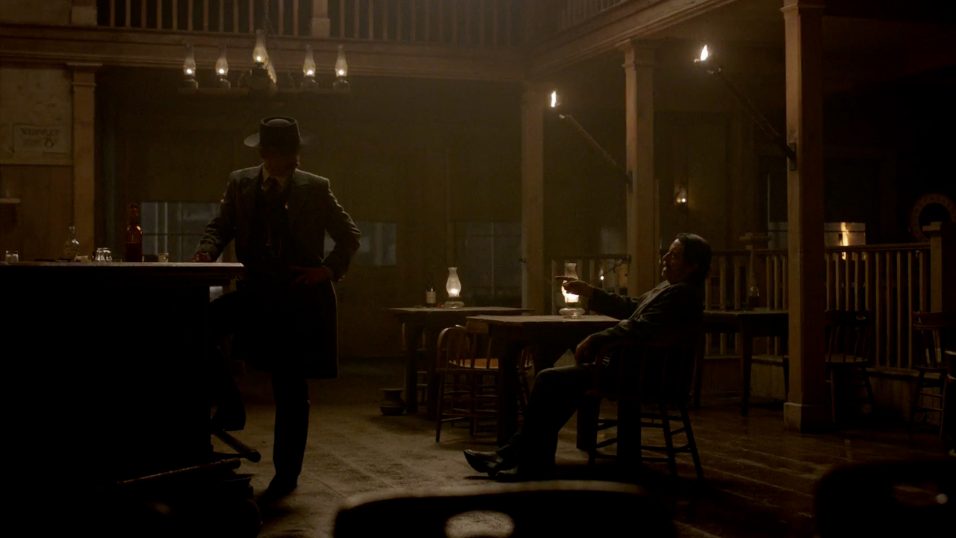Speech at Mepham High NEHS Induction
Through my literary agency, I was invited to offer a few remarks at a high school induction ceremony for the National English Honor Society. Of course I agreed, because I love any opportunity to put on an adult suit of clothes and pantomime competence. And also any opportunity to make a speech, because listening to myself talk is hella fun.
Here I am speechifying; tell me it’s not hot:

It’s interesting to note how the high school experience, at least in this narrow way, is exactly as I remember it. Aside from the security on the entrance, things don’t seem to have changed much since my day, despite the constant sense you get as a middle-aged person that the Youth have strayed onto darker paths than you could have imagined at their age, and are evolving into strange creatures you can’t possibly understand. The kids sitting, bored to tears, during this induction ceremony were exactly like me and my friends when we were that age. It was … oddly comforting.
It always amazes me that I’m asked to make remarks and then no one wants to vet those remarks before I make them, especially when I’m known for talking about drunkenness and pantslessness and those remarks will be directed at children. And yet this is what happened. For my speech, I decided to put a button on the whole competency issue by talking about my own lack of it, but the ultimate point I tried to make was that English and language skills are fundamental to just about every industry. You hear a lot about how to make a living and career choices, but what’s often lost is that being able to read and write with skill and efficiency is absolutely a superpower no matter what industry you wind up in. Anyone who’s had to parse the gibberish emails of colleagues will know what I mean.
Anyways, here’s the speech I made:
First of all I’d like to congratulate all of you for this achievement—you should be proud of yourselves and very smug about this. And I’m kind of an expert in being smug, something my wife will confirm for you if you want, so I know when it’s a good time for smugness, and this is one of them.
And I know that it must really mean something to you, hearing it from me, person you’ve never heard of before. But I know what I’m talking about here, because I’m one of you. I’m one of those people who started reading big adult books when they were kids, one of those people who started writing stories when they were nine years old. I even sold a novel when I was sixteen, though it never published due to an incompetence singularity so powerful it destroyed several careers.
But words and writing had been so good to me in my childhood, so when the time to go to college, I naturally chose to earn a degree in English, mainly because I’d already read all the books. I started to understand how powerful it is to have this sort of grasp and control over words when my a professor in a 200-level class accused me of plagiarism because I was too good at mimicking the style and tone of the reference books I was using. I offered to show him other examples of my writing to prove it was my work, and when he saw the stack of manuscripts I brought in he instantly gave in and changed my grade. The kicker? The writing that seemed too good to be mine got a B. But I knew then that being able to write was an advantage over most other people.
After graduation, unfortunately, my parents informed me very sadly that seeing as I was legally an adult with a college degree, they could no longer pay my bills, and so I had to get a job. Which is when I discovered that I am a man afflicted by what scientists call No Marketable Skills Syndrome. Which is something else my wife can confirm for you, if my performance up here isn’t confirmation enough.
I’m not athletically gifted, which I know surprises you based on my appearance here. But the fact is, when I played Little League as a kid I pioneered the little-known position of Left Out, and the kid playing Center Field used to routinely practice racing over to shag any fly balls hit towards me.
I’m not musically gifted; I’ve been playing guitar for ten years and still can’t do a proper barre chord.
I’m not good with numbers, I can’t program, and I have the hand-eye coordination of a rock, so there was no professional Fortnite playing in my future—especially since I don’t play any video games that don’t have a God Mode. I’ve got really poor attention to detail; I was once fired from a job in a convenience store because I could never stock the sodas correctly in the cooler, and believe me when I say that stocking the sodas in the cooler was not difficult. I’ve also got a strong tendency to space out and daydream during lectures, meetings, and disciplinary hearings called to address my tendency to space out and daydream. As my sainted wife will tell you, I’m virtually unemployable.
And yet, here I am, making this speech, which obviously means I am successful and important, because unsuccessful and unimportant people do not, as a rule, get to make speeches. The reason I’m up here making a successful and important speech despite having no marketable skills or, apparently, fashion sense, is simple: Like you, I pursued English, and the skills that mastery over language have given me have enabled me to publish ten books and dozens of short stories, to sell film and TV options on several of those books and stories, and to make my living as a writer for websites like Barnes and Noble’s book blog, for magazines like Writer’s Digest, and for corporate clients writing terrible things I am largely ashamed of.
Because, here’s the thing: English, the stuff you’ve learned here in school and that you’ll hopefully continue to learn, is a superpower. No kidding. You’ll have to take my word this despite the fact that I just used the phrase ?the stuff’ instead of some creative and well-crafted metaphor.
Here’s a few things that will happen because of what you’ve learned here in school and will continue to learn going forward:
1. People will assume you are smart, whether you are actually smart or not. Again, I know this from personal experience as a not-very smart person who has been given the nickname Shakespeare more times than he can count. Also the nickname Einstein. It’s always Shakespeare or Einstein. I’m not sure why Einstein; I guess he’s the only other really smart person people can think of off the top of their heasds. People see you reading a book or writing in a notepad, and they just assume you’re brilliant. It’s really useful.
2. You’ll be able to see through people and know what they’re really thinking. This is because most people don’t have the skills you’re getting through studying English—deep reading comprehension and the ability to write effectively and efficiently. Whether it’s emails, texts, or angry, anonymous notes left on your windshield, no one’s gonna be able to get anything past you in this life. At the same time, you’ll be able to fool everyone because of your language skills. Think about that for a moment: If you happen to be a sociopath—and science tells us that there’s a very good chance at least some of you are—that means you’re practically Lex Luther already.
3. People will pay you to write things and read things for them, because they can’t. Or don’t want to. You won’t want to believe this, because for folks like us who have this mastery over language reading and writing seems easy, so the idea that someone will pay you, for example, tens of thousands of dollars for the right to publish a book you wrote in your spare time in-between a heavy schedule of playing video games and napping will strike you as a ridiculous fantasy.
But the thing is, these things are extremely difficult for a great many people, and so it does, in fact, happen. Even to people who have No Marketable Skills. Because writing is fundamental to everything. Everything begins with words. Every movie, TV show, and video game begins with a stack of memos and outlines and instructions. Every product begins with research papers and more memos and emails and reports. Music—even music without lyrics—requires language to be arranged and performed and composed. Every business and academic endeavor is fueled by words, and the people who can write those words and the people who can easily digest and comprehend them are absolutely necessary to their success. With the skills you’ve acquired and will acquire, there isn’t an industry in the world that doesn’t need you—possibly in a hidden, non-glamorous sort of way that will be forever disappointing, but still.
Of course, I am duty-bound to also inform you of the downsides to this life, which mainly boils down to the social shunning you’ll experience because you won’t be able to ignore bad writing. You’ll become that person who complains about plot holes, idiot dialog, and undercooked themes in movies and TV shows. People will stop inviting you to things because you can’t stop talking about how the ending of Us makes no sense—just incomprehensible nonsense that gets increasingly incomprehensible the more Jordan Peele makes attempts in interviews to explain it. Trust me—these sorts of observations do not make you very popular.
Look; its lonely being the smartest person in the room, but thanks to what you’ve achieved here, that’s gonna be your cross to bear. Once again: congratulations!









